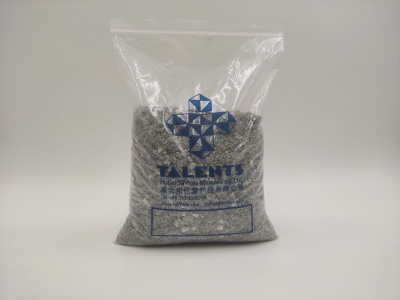barite for flooring
Product Features:
Drilling grade barite are produced from natural barium sulfate ores.Commonly used as a weighting agent for all types of drilling fluids in oiland gas exploitation.
Our drilling barite manufactured to meet or exceed all APl 13 Arequirements.
This grade also can be used in the applications which high purity but lowwhiteness requirements.
Application Areas:
◆Oil drilling ◆Friction materials ◆Rubber ◆Radiation wall
Index | TLZ-DB01 | TLZ-DB02 |
Appearance | Granule | Granule |
Special gravity ≥ | 4.1 g/cm³ | 4.2 g/cm³ |
BaSO₄+ SrSO₄Content | 85% | 90% |
Hg ppm ≤ | 1 ppm | 1 ppm |
Cd ppm ≤ | 3 ppm | 3 ppm |
As ppm ≤ | 40 ppm | 40 ppm |
Pb ppm ≤ | 1000 ppm | 1000 ppm |
Si0₂Content | - | 3% max |
Fe₂O₃Content | - | 3% max |
Carbonates | 5000ppm max | 5000 ppm max |
Water Soluble Alkaline Earth Metals As Calcium ≤ | 250 mg/kg | 250 mg/kg |
Miosture | 2% | 2% |
Granule Size | 0-100 mm | 0-100 mm |
Barite, a naturally occurring mineral composed primarily of barium sulfate (BaSO₄), has found increasing applications in construction, particularly in flooring systems. This article explores the role of barite in flooring materials, highlighting its physical properties, engineering advantages, relevant standards, and practical considerations. It is designed to serve professionals in construction, materials engineering, and flooring manufacturing who seek an in-depth understanding of barite’s use in flooring applications.
1. Understanding Barite and Its Material Characteristics
Chemical Composition: Barium sulfate (BaSO₄)
Physical Properties:
High density: approximately 4.5 g/cm³
Chemical inertness and non-toxicity
High refractive index and opacity
Excellent radiation shielding properties
Relevance to Flooring: Barite’s density and inertness make it an ideal additive or aggregate in specialty flooring mixes, especially where radiation shielding or high durability is required.
2. Applications of Barite in Flooring
2.1 Heavy-Duty and Radiation Shielding Floors
Barite is extensively used as a filler or aggregate in concrete or epoxy flooring systems in hospitals, laboratories, and nuclear facilities to provide gamma and X-ray radiation shielding.
Density Enhancement: Adding barite increases floor density, improving protective qualities.
Durability: Barite enhances mechanical strength and wear resistance.
2.2 Decorative and Functional Flooring
Barite can also be incorporated into terrazzo, epoxy coatings, and specialty resin floors for improved aesthetics and functional benefits.
3. Engineering Principles and Material Integration
Mix Design: Typical incorporation ranges from 20% to 50% by weight depending on shielding requirements.
Particle Size: Fine barite powders (below 75 microns) ensure uniform dispersion and surface finish.
Compatibility: Must be chemically compatible with cementitious or resin binders to avoid adverse reactions.
4. Relevant Standards and Quality Requirements
ASTM C473: Standard test methods for physical properties of aggregates used in concrete.
ISO 8124-1: Safety requirements for chemical properties (ensuring barite is non-toxic and safe for indoor use).
Radiation Shielding Standards: Compliance with NRC or IAEA guidelines for floors in radiation environments.
5. Installation and Operational Considerations
Mixing: Thorough blending of barite with binders ensures homogeneous distribution.
Surface Preparation: Floors must be properly leveled and cured to optimize barite’s mechanical benefits.
Safety: Handling barite powder requires dust control measures to avoid inhalation risks.
Frequently Asked Questions (FAQs)
Q1: Why is barite preferred over other aggregates for radiation shielding floors?
A: Its high density and barium content provide superior attenuation of gamma and X-rays.
Q2: Can barite be used in residential flooring?
A: While primarily for industrial and medical use, barite can be included in decorative flooring for enhanced durability and aesthetics.
Q3: Does barite affect the curing time of concrete floors?
A: Proper mix design mitigates any adverse effects; barite itself is chemically inert.
Q4: Are there environmental concerns with using barite?
A: Barite is non-toxic and safe when handled with appropriate precautions.
Conclusion and Professional Call to Action
Barite offers a unique combination of high density, chemical inertness, and durability, making it an invaluable material for specialty flooring applications—especially where radiation shielding or enhanced mechanical properties are essential. Proper material selection, adherence to engineering principles, and compliance with standards ensure optimal performance.
We provide comprehensive consulting on material sourcing, mix design, and installation techniques for barite-based flooring systems. Contact us today to leverage our expertise and implement high-performance, compliant flooring solutions tailored to your project needs.





